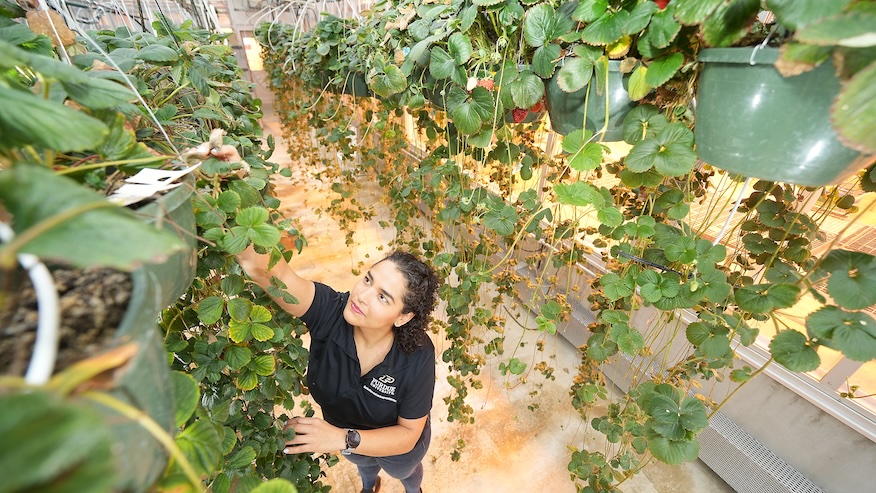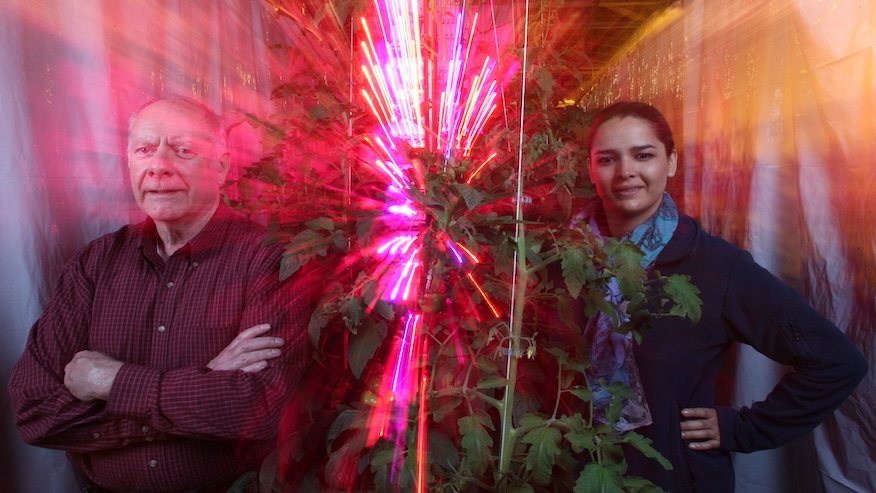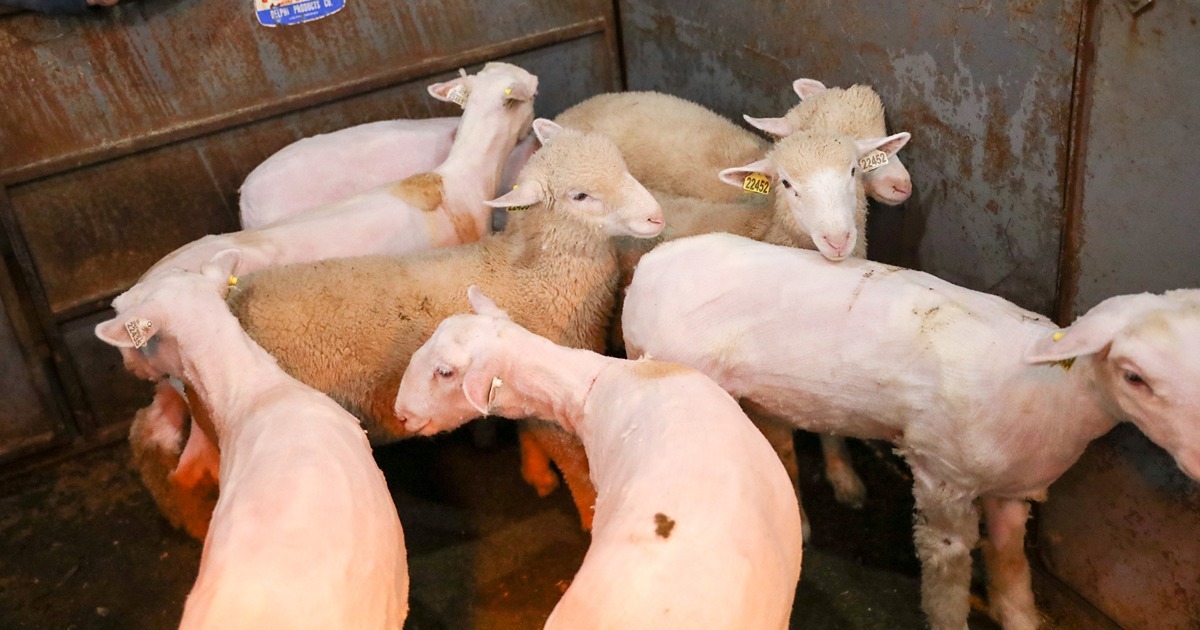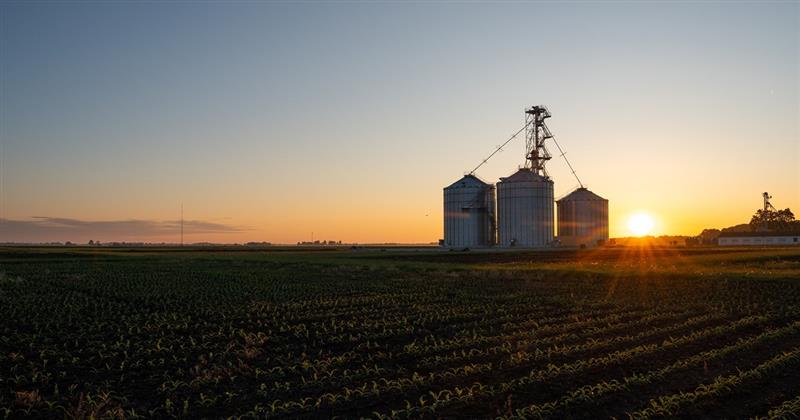NCERA-101 receives 2024 National Excellence in Multistate Research Award
WEST LAFAYETTE, Ind. — North Central Extension & Research Activity-101 (NCERA-101) Committee on Controlled Environment Technology and Use has been honored with the 2024 Excellence in Multistate Research Award by North Central Regional Association (NCRA) of State Agricultural Experiment Station Directors. Presented annually by agInnovation, the leading institution for organizing land-grant research in the U.S., this prestigious award celebrates outstanding multistate research efforts that enhance the visibility of multistate programs. Additionally, NCERA-101 will be recognized at the Association of Public Land-grant Universities Board on Agricultural Assembly’s November award ceremony, “A Community of Scholars Celebrating Excellence.”
This year’s award marks the first time NCERA-101 has received this national recognition. Celina Gómez, associate professor of controlled environment agriculture in Purdue University’s Department of Horticulture and Landscape Architecture and Purdue representative for NCERA-101, played a pivotal role in developing the award nomination packet. Her efforts highlighted the committee’s achievements, including:
- Publishing comprehensive guidelines
- Authoring a widely used textbook for controlled environment courses
- Influencing guidelines for NASA’s life-support systems for space missions
- Collaborating with the DesignLights Consortium to update light reporting guidelines for plants, incorporating a new discovery made by committee members
- Leading workshops that help growers optimize yields and improve operational efficiency
- Engaging in multidisciplinary and multi-institutional projects including, but not limited to, Greenhouse Lighting and Systems Engineering, Optimizing Indoor Agriculture, Next-Generation Propagation Strategies and S. Strawberry Precise Indoor Propagation
NCERA-101 has always been a group effort, and it’s a great honor to be recognized for all the positive outputs and accomplishments everyone has made,” Gómez said.
NCERA-101, a committee organized by the U.S. Department of Agriculture, is dedicated to advancing plant science through the effective and consistent use of controlled environment (CE) technology across the U.S. Additionally, NCERA-101 collaborates with the Controlled Environment Users' Group in the UK and the Australasian Controlled Environment Working Group every four to five years to establish international guidelines for growth chamber, greenhouse and tissue culture research.
Reflecting on the committee’s origins, Cary Mitchell, horticulture professor in Purdue’s Department of Horticulture and Landscape Architecture and former Purdue representative to NCERA-101, shares: “The committee started in the Northeast region in the 1970s. In fact, I believe the first organizational meeting was held here at Purdue. It began with a small group recognizing the need for a North Central Regional controlled environment working group as growth chambers were becoming more common for research.”
NCERA-101 now boasts 176 members from 142 institutions across 35 U.S. states. Mitchell attributes this growth to the rising interest in controlled environment agriculture (CEA). Significant CEA milestones include research on light-emitting diodes (LEDs) for plant growth, early sponsorship from NASA and other federal agencies, and the introduction of multi-institutional funding initiatives. In 2010, Purdue received the USDA Specialty Crops Research Initiative Award, which provided financial support from the USDA and industry partners for the project titled “Developing LED Lighting Technology and Practices for Sustainable Specialty-Crop Production.” Led by Mitchell, this initiative facilitated the widespread use of LED technology for large-scale commercial CEA production.
CEA is now attracting economists, engineers and plant biologists who are interested in supporting indoor crop production. CEA is one of the agricultural technologies that they are pinning hopes on providing necessary food by 2050. While it won’t be the sole solution, it could help areas with high intrinsic-value crops,” Mitchell adds.
Today, NCERA-101’s research focuses on tackling major challenges in food and agricultural (F&A) research. The committee aims to enhance the sustainability, competitiveness and profitability of F&A by leveraging technological advances for specialty crop production in CE facilities. Additionally, it contributes to mitigating climate change impacts on food, feed, fiber and plant-based energy systems by providing technical guidelines for the sustainable operation of CE facilities.
NCERA-101 has also been awarded $15,000 from the Hatch Multistate Research Fund. This funding will support member participation in both international and national meetings, assist with costs for student travel and further the committee’s research activities.
About Purdue Agriculture
Purdue University’s College of Agriculture is one of the world’s leading colleges of agricultural, food, life and natural resource sciences. The college is committed to preparing students to make a difference in whatever careers they pursue; stretching the frontiers of science to discover solutions to some of our most pressing global, regional and local challenges; and, through Purdue Extension and other engagement programs, educating the people of Indiana, the nation and the world to improve their lives and livelihoods. To learn more about Purdue Agriculture, visit this site.
About Purdue University
Purdue University is a public research university leading with excellence at scale. Ranked among top 10 public universities in the United States, Purdue discovers, disseminates and deploys knowledge with a quality and at a scale second to none. More than 106,000 students study at Purdue across multiple campuses, locations and modalities, including more than 57,000 at our main campus locations in West Lafayette and Indianapolis. Committed to affordability and accessibility, Purdue’s main campus has frozen tuition 14 years in a row. See how Purdue never stops in the persistent pursuit of the next giant leap — including its integrated, comprehensive Indianapolis urban expansion; the Mitch Daniels School of Business; Purdue Computes; and the One Health initiative — at https://www.purdue.edu/president/strategic-initiatives.
Media contact: Devyn Ashlea Raver, draver@purdue.edu
Agricultural Communications: Maureen Manier, mmanier@purdue.edu, 765-494-8415






